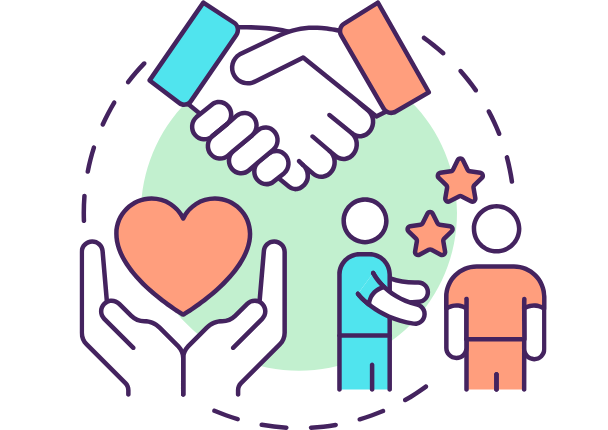Throughout your life, the number and strength of your relationships affect your mental and physical well-being.
The benefits of maintaining positive social connections are numerous. Proven links include lower rates of anxiety and depression, higher self-esteem, greater empathy, and more trusting and cooperative relationships. Strong, healthy relationships can also help to strengthen your immune system, help you recover from disease, and may even lengthen your life.
The good news is that while many of these benefits can make you happier and more contented, there is also a flow-on effect, whereby people around you will want to spend time with you. In this way, social connectedness generates a positive feedback loop of social, emotional, and physical well-being. As we age, those of us who remain connected with others and maintain strong relationships are likely to have a better quality of life.
Work to improve your social connections!
Loneliness can have dramatic consequences for your health. It can lead to disrupted sleep patterns, elevated blood pressure, and increased cortisol (a stress hormone). It can also affect your immune system and decrease your overall sense of contentment.
Feeling lonely can be difficult to manage, but luckily, there are things you can do to tackle loneliness. For instance, you can nurture healthy relationships with people who make you feel good by spending time with them and trying to talk to someone every day.
Three kinds of social connections are particularly impactful:
- Intimate connections: with people who love and care for you, such as intimate partners, family, and friends,
- Relational connections: with people you see regularly and share an interest with, such as coworkers or those who serve your morning coffee.
- Collective connections: with people who share a group membership or an affiliation with you, such as people who vote like you do, or people who have the same faith.

Ask yourself: Do I maintain meaningful, long-term relationships with people in these three areas?
Perhaps you tend to stick with old friends and do not feel able to meet new people. Or maybe you avoid people from your past, preferring to mix with people who do not know you very well.
Be honest with yourself about your social habits. Think about the sorts of relationships that you have with people and the sorts of relationships you would like to have. You might find yourself desiring new friendships, or perhaps wanting to make your existing relationships stronger.
An effective way to strengthen your social connections is by reaching out to the people you already know, such as co-workers, family, school friends, or neighbors. Give someone a call, write, or email them to let them know you wish to catch up and would like to be in touch more often. Arrange to have coffee or a meal, listen to music together, share a round of golf, or play a game of chess. Think about the interests you share with others and remember that social media may also afford a great way to stay in touch.
If you find that events in your life have left you feeling disconnected from others, or feeling lonely, consider contacting your Faculty and Staff Assistance Program (FSAP) at 305-284-6604. Call to arrange a confidential virtual, or in-person, visit to discover how our licensed mental health professionals support and help clients develop simple game plans for reconnecting with others and positively impacting their lives.
Source: Strong Relationships, Strong Health
Click here to read the full Mind & Matter Spring Edition.